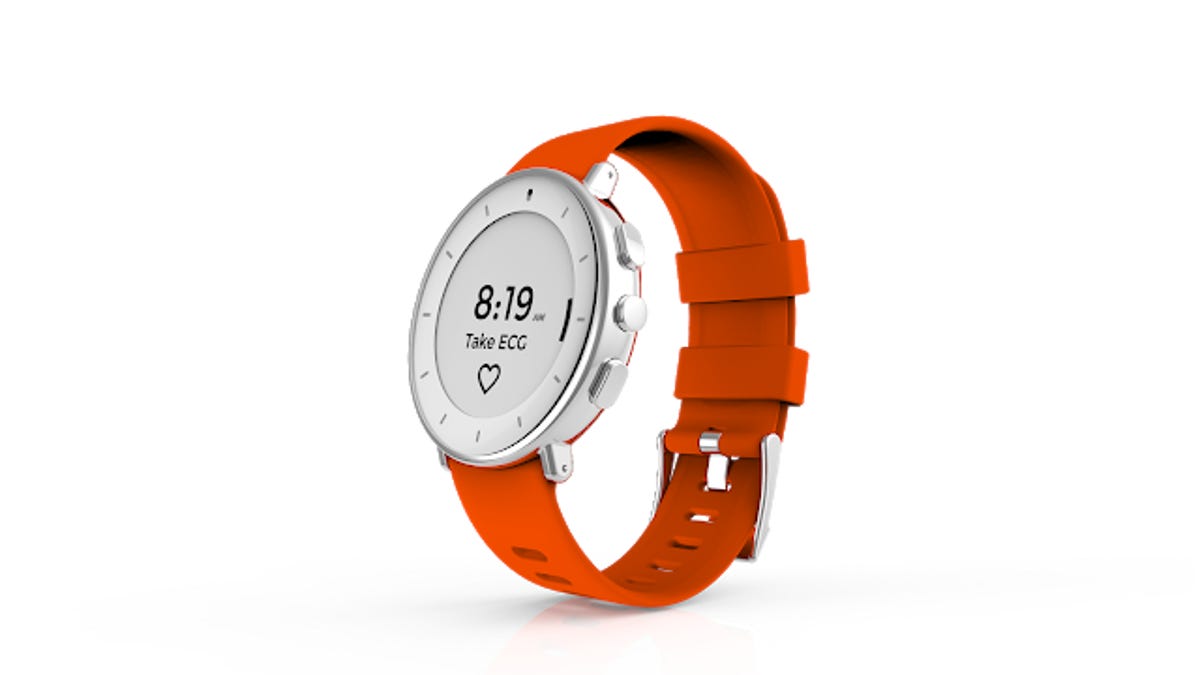Alphabet’s Verily health watch gets limited ECG clearance from FDA
Verily, part of Google's parent company, is using the watch in studies on cardiovascular health.

Verily, Alphabet's life sciences arm, said Friday that it's received FDA clearance for an ECG feature on its Verily Study Watch.
Verily, part of Google parent company Alphabet, launched the Verily Study Watch in April 2017 to collect health information from clinical research participants. The watch has been used by thousands of participants in clinical research studies, according to the company. Verily says unobtrusive biosensing using devices like Study Watch could help researchers understand what's happening in the body at a given time, as well as how our bodies stay healthy or change with disease.
One area Verily has focused on with Study Watch is cardiovascular health. The watch includes an electrocardiogram, or ECG, feature, which measures the electrical activity of the heart and can help diagnose a variety of heart conditions.
The FDA-cleared Study Watch is prescription-only and is meant to be used by health care professionals, adult patients who have or may have heart conditions and "health conscious individuals." Verily says the "ability to take an on-demand, single-lead ECG can support both population-based research and an individual's clinical care."
The company's current research includes collecting and organizing a variety of health data, from ECG to electronic health records and medical images.
"This work may ultimately give us insights into the utility of integrating mobile health data into the clinical care environment, and how these data can support the physician-patient relationship," Verily wrote in a blog post. "We are working towards a future where we can use devices, like the FDA-cleared Study Watch, to inform real-world, personalized care decisions and help us move to proactive health care."

